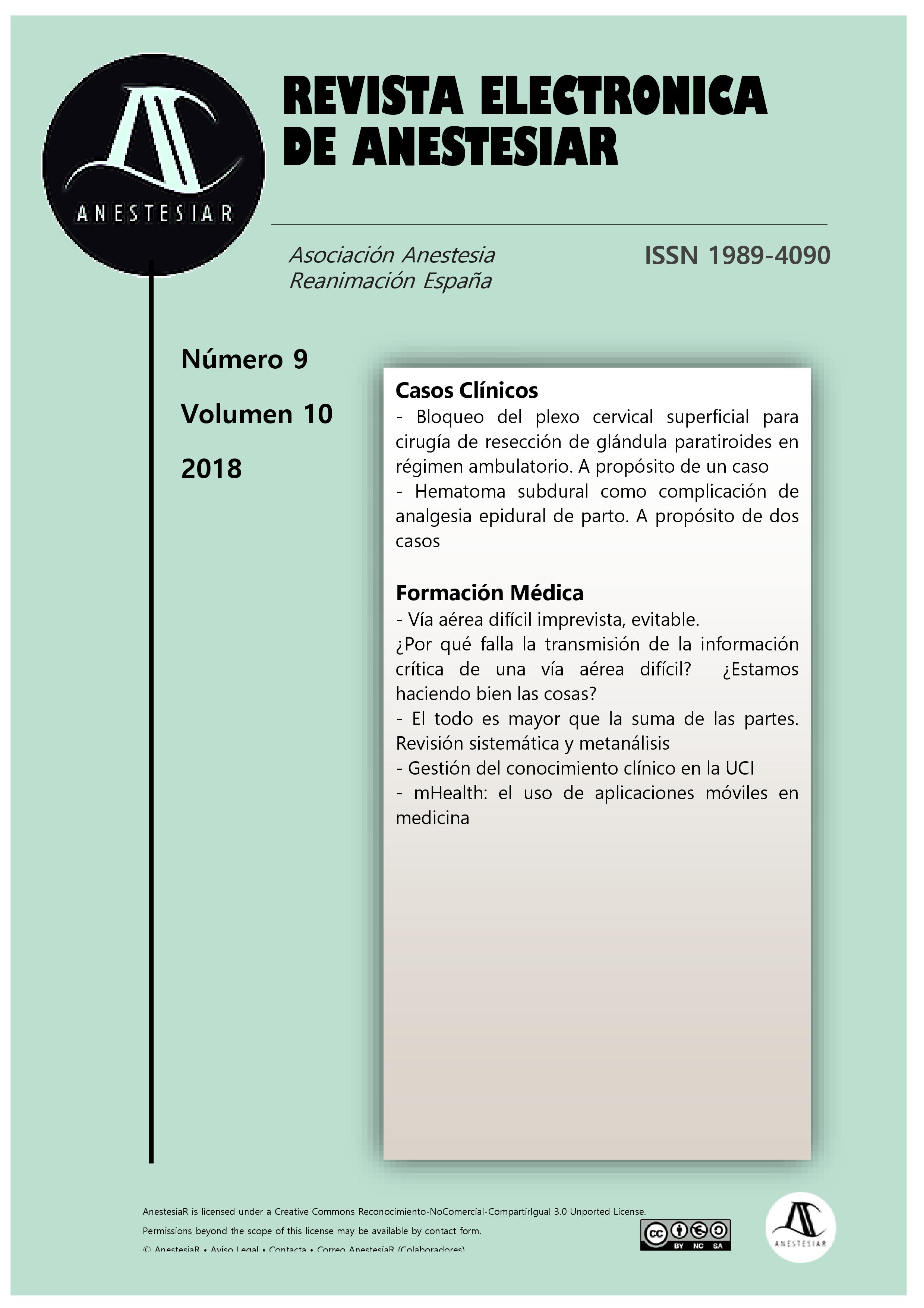Clinical knowledge management in ICU
DOI:
https://doi.org/10.30445/rear.v10i9.611Keywords:
ICU, Clinical knowledge management, critical care, learningAbstract
Knowledge provides health professionals the power to improve health systems, has obvious benefits that could really make a difference in people's lives, something evident in an intensive care unit (ICU). In the field of critical medicine we are always faced with situations in which it is necessary to think quickly with the aim of processing the clinical information and the information obtained through the available technology, in order to establish a treatment and evaluate its effectiveness.
Management of knowledge (MK) is the key to patient care in these difficult situations, so we will have to plan and use the available knowledge: basic research, technology and clinical experience. In this way, the CG helps to improve the organization's objectives: it improves the care for pathologies and allows generating the necessary information for an improvement in the care of these patients. It implies an organizational vision in which people cooperate carrying out care processes based on evidence, efficacy and efficiency. Therefore, good talent management (human capital) is important with the push of new professionals and its combination with senior professionals who bring experience and values in cllinical practice.
Thus, knowledge management is a strategy that converts the intellectual values of organizations into an improvement in productivity, added value and increased competitiveness. Therefore, knowledge management consists of the production, distribution, storage, evaluation, transfer and in the practical management of that knowledge. The main drivers of in intensive care, is to structure the clinical knowledge (CK) for pathologies, promote and train in technology knowledge (TK) for diagnosis at bedside andorgan support; and the global knowledge of the organization (GK): with the obtaining of data with the information and communication technologies(ICT), the welfare quality and the security of the patient. Below I discuss from a clinical point of view how the CK should be structured within an ICU, as well as the areas that should be implemented in the future.
References
2.- Programa de la UCI extendida del Hospital del Henares aumenta la seguridad del paciente. http://www.madrid.org/cs/Satellite? cid=1142636018772&language=es&pageid=1142676973136&pagename=HospitalHenares%2FCM_Actualidad_FA%2FHHEN_actualidad Last access Enero 2018.
3.- Kramer A. A, Higgins T. L, Zimmerman, J. E. Intensive care unit readmissions in U.S. hospitals: Patient characteristics, risk factors, and outcomes.Critical Care Medicine. 2012 January. 40(1):3-10.
4.- Campbell J. A. Cook G. Adey B. H. Cuthbertson. Predicting death and readmission after intensive care discharge. British Journal of Anaesthesia , Volume 100 , Issue 5 , 656 – 662.
5.- Needham Dale M. Patient Safety, Quality of Care, and Knowledge Translation in the Intensive Care Unit. Respir Care 2010;55(7):922–928.
6.-Verghese A, Shah NH, Harrington RA. What This Computer Needs Is a Physician Humanism and Artificial Intelligence. JAMA. 2018;319(1):19–20.
7.-Sheehy AM, Weissburg DJ, Dean SM. The Role of Copy-and-Paste in the Hospital Electronic Health Record. JAMA Intern Med. 2014;174(8):1217–1218.
8- Proyecto Humanizando los cuidados intensivos. http://humanizandoloscuidadosintensivos.com/es/inicio/ Last access Enero 2018.
9.- SENSAR (Sistema Español Notificaciones Seguridad en Anestesia y Reanimación).
http://sensar.org/sobre-sensar. Last access Diciembre 2017.
Downloads
Published
How to Cite
Issue
Section
License
Copyright (c) 2018 Revista Electrónica AnestesiaR

This work is licensed under a Creative Commons Attribution-ShareAlike 4.0 International License.
 Envío y derechos de autor
Envío y derechos de autor


 Revista Electrónica AnestesiaR by
Revista Electrónica AnestesiaR by 